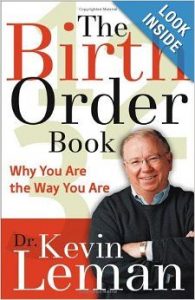It’s mighty hard to know how to act sometimes, whether you’re a kid, a parent, a middle-aged adult, or in the last few scenes of life. Two internationally renowned experts who have researched those many roles live right here in Tucson. Executive Editor Scott Barker sat down with Kevin Leman, Ph.D., and Andrew Weil, M.D., for a chat.
KEVIN LEMAN, PH.D.

Dr.Kevin Leman is strolling through the halls of the Leman Academy of Excellence, kids gravitating toward him like static-charged socks to a blanket. Smiling as he goes, in his casual jeans and pale blue button-front shirt, he resembles a favorite uncle crossed with a savvy CEO, with a little 1960s-era standup comedian thrown in. If you watch the renowned child development authority and author at work, effortlessly providing encouragement and offering advice, you would never know that he was once a terrible student. In his youth, he had little prospect of graduating from school, much less one day running one named for him.
“I graduated fourth from the bottom of my class in high school,” he notes. “I ran across my ninth grade report card a few years ago, and I asked my publisher to reprint it in one of my books. I even flunked health and PE. I put that report card in the book because sometimes people think you’re stretching the truth.”
Through his transformation from an academically struggling class clown to a sought-after psychologist, he has gained a lot of insight. And being a parent (with Sande, his wife of 44 years) and grandparent, his approach to childrearing has been forged in the crucible of real-world experience.
What he has to say about raising healthy and responsible citizens — documented in New York Times bestsellers such as Have A New Kid By Friday, Parenting Your Powerful Child, and Planet Middle School, provides invaluable insight into one of the most difficult stages of our lives: childhood.
MYTHED BY A MILE
It seems that every celebrity who has young kids gets booked onto a talk show to explain how they manage to “do it all.” And there is no dearth of bloggers who have become famous (or notorious) for touting their various parenting techniques. One hardly knows who to believe anymore, in a world where an expert is simply someone with a large Facebook following.
Leman understands the frustrations of parents who may be getting advice from everyone from their in-laws to their gym buddies. His books, seminars and other instructional methods cut through a tangled mythos to get to the facts about what kids need.

“One of the biggest myths is that kids need to feel like they’re the center of the universe,” he observes, kicking back in a meeting room on the Leman Academy’s campus. “And if you look at how parents treat their kids today, for the most part, parents are driven by the belief that their child has to feel so special. Even though the kid strikes out at a Little League game, never lifts his bat, watches three straight pitches go by, which is a minor miracle if you’ve ever watch Little League baseball, the young parents are yelling, ‘Great at bat Michael! Great at bat!’ I’ve got news for you — it was a lousy at bat. He didn’t even swing. What would be helpful in that situation, rather than blow smoke at that child, is to say something like, ‘Hey, rough day at the plate today, Mike. I’m going to be home early on Wednesday and Thursday night if you’d like me to throw batting practice for you.’ In other words, failure is good. Home needs to be a place where you learn how to fail. Talk to any successful person, and they will point to failure in their life.”
It was the prospect of a lifetime of failure that caused Leman to finally learn to apply himself when he landed on the University of Arizona campus at the age of 19. “I had a sister who was perfect, and a brother who was the quarterback of the football team and a great student. So I became the best at being the worst,” he admits. His parents tried to manage his misbehavior with an authoritarian approach that was pretty standard for the post-war years. “In my house we were Irish Catholic, and my father used to threaten us with a shillelagh. I remember when I was nine years old hearing, ‘You want me to get the shillelagh?’ I never saw one … I didn’t know what one was. I was a sophomore at the University of Arizona when I discovered that it was a walking stick.”
As disastrous as it can be when a parent tries to rule with an iron fist, the opposite extreme, which Leman sees a lot of in his travels, can turn out just as bad. “Today, parents struggle because of this misunderstanding of what authority is, versus authoritarianism. In authoritarianism, you shame your kids. As an authority, you encourage your kids. Simple example: Kid brings home a report card with five A’s and a B. What do most parents say? ‘Hey, what’s with the B?’ If you say, ‘Five A’s and a B — good job! Looks like all that hard work is paying off.’ That’s ‘Vitamin E’ — Encouragement. Whereas, ‘Wow, you’re the best boy in the whole world! Here’s five dollars and I’m calling grandma right now,’ that’s the old praise technique. If you go on Good Morning America and try to tell people in six minutes that praise is destructive to children, they look at you like you’ve got a screw loose.”
YOU’VE BEEN SCHOOLED
Working as a psychologist, talking to millions of people via TV appearances, and writing books on the valuable lessons he’s learned in his decades in the trenches, have all been wonderful experiences for Leman. But talk to him about the Leman Academy, which opened in August 2015, and his face really lights up.
“This school started over a cup of coffee with a friend of mine who said to me, ‘Kevin, would you ever want to have a school?’ I answered, ‘I’ve always wanted to, but how could I?’ And he said, ‘You could have a charter school.’ I said, ‘Speak to me. I don’t know what that even is.’ So he explained it to me, and 18 months after that conversation, I was welcoming parents into this building. It came together beautifully.”

The school, currently kindergarten through sixth grade, sits behind a shopping complex northwest of Tucson in Marana, looking both modern and airy, and yet solid and traditional. The appearance of the place is definitely echoed in the curriculum, which is classically based, acknowledges that each kid is a little different, and involves the time-honored basics in math, history and grammar, as well as Latin and logic. There also are sports programs, and it’s not uncommon for the school’s founder to turn up to watch the competition.
“It’s so much fun to watch it work,” Leman enthuses. “A lot of the things that I’ve written about, personal accountability and all that, they manifest themselves in our school. If you hire the right people — teachers and staff who have a heart for kids — it’s a winning combination.”
What is really interesting about the arrangement, however, is the ways in which kids have become involved in helping their peers. All too often we hear of children being bullied at school, on bus rides, through social media, but we don’t think of them being enlisted as a solution to the problem. On the Leman Academy’s grounds, there are designated benches where a kid can sit if he is having a problem, and a teacher or peer will spontaneously take a seat next to him to provide a friendly ear, and a dose of “Vitamin E.”
“Here we are encouraging kids. They’re learning at warp speed, we have all kinds of testimonies by parents on Facebook who say ‘My kid didn’t like school. Now he cries when he knows vacation is coming up.’ For a dummy like me who shouldn’t have gotten out of high school, the things that I’ve done in life, it’s a privilege to be here and walk out there and have the little ankle biters give me a hug,” says Leman. “They tell me about their loose tooth, or ‘My mommy’s going to have a baby.’ They’ll tell me anything at all.”
ROOM TO GROW
You probably will never hear Kevin Leman utter the phrase, “I’ve done enough.” By nature, he is driven to keep going, whether it’s for the next laugh he can coax from a visitor, or a new book he can write (he and former White House communications director Jeff Nesbit just published another thriller in their Worthington Destiny series), or additional steps for his school.
At press time, the Leman Academy was expanding into Sierra Vista, had just opened a school in Mesa, Arizona, and had its sights set on a location in Parker, Colorado. “I really believe we can put these schools all over the country and in some way make a dent in American education,” Leman says.
 And already, the campus on North Silverbell is expanding. Next year the school will offer academics through seventh grade, and plans to expand to eighth grade by 2017. And it’s not lost on Leman that the lot next to the academy is vacant. “Yes, I want a high school,” he admits with a chuckle.
And already, the campus on North Silverbell is expanding. Next year the school will offer academics through seventh grade, and plans to expand to eighth grade by 2017. And it’s not lost on Leman that the lot next to the academy is vacant. “Yes, I want a high school,” he admits with a chuckle.
If that news creates a stampede among parents who want to sign their teens up for what may well be a life-changing experience, he doesn’t seem worried. He has learned that sometimes the best things happen in unexpected ways.
“Everything I’ve done, I never wanted to do,” he sums up. “I was teaching at the University of Arizona and people said, ‘You ought to write a book.’ I thought, ‘Yeah, right.’ After I heard it about 1,000 times, I thought, ‘I wonder if I could do that.’ That was 52 books ago.”




 And already, the campus on North Silverbell is expanding. Next year the school will offer academics through seventh grade, and plans to expand to eighth grade by 2017. And it’s not lost on Leman that the lot next to the academy is vacant. “Yes, I want a high school,” he admits with a chuckle.
And already, the campus on North Silverbell is expanding. Next year the school will offer academics through seventh grade, and plans to expand to eighth grade by 2017. And it’s not lost on Leman that the lot next to the academy is vacant. “Yes, I want a high school,” he admits with a chuckle.